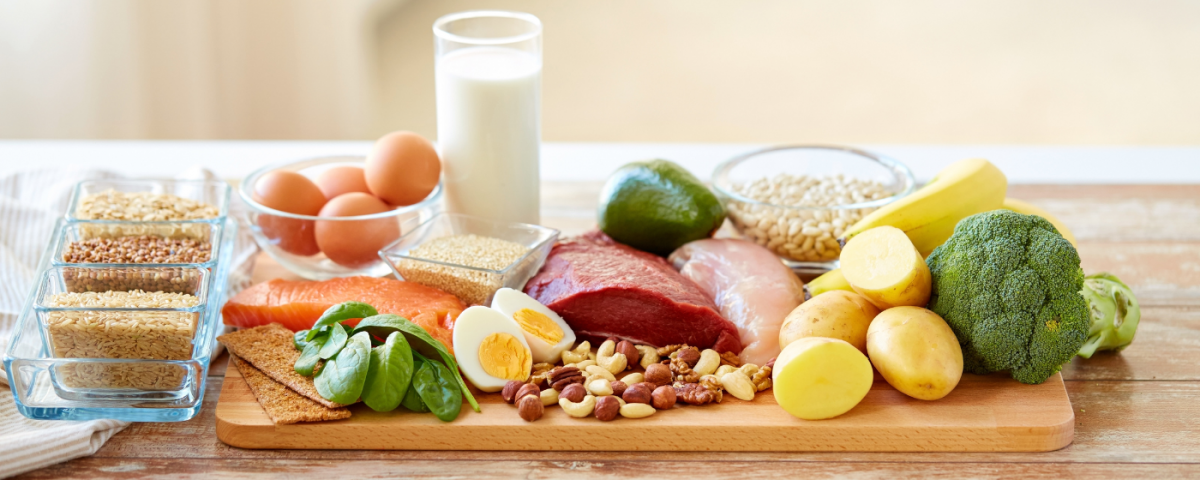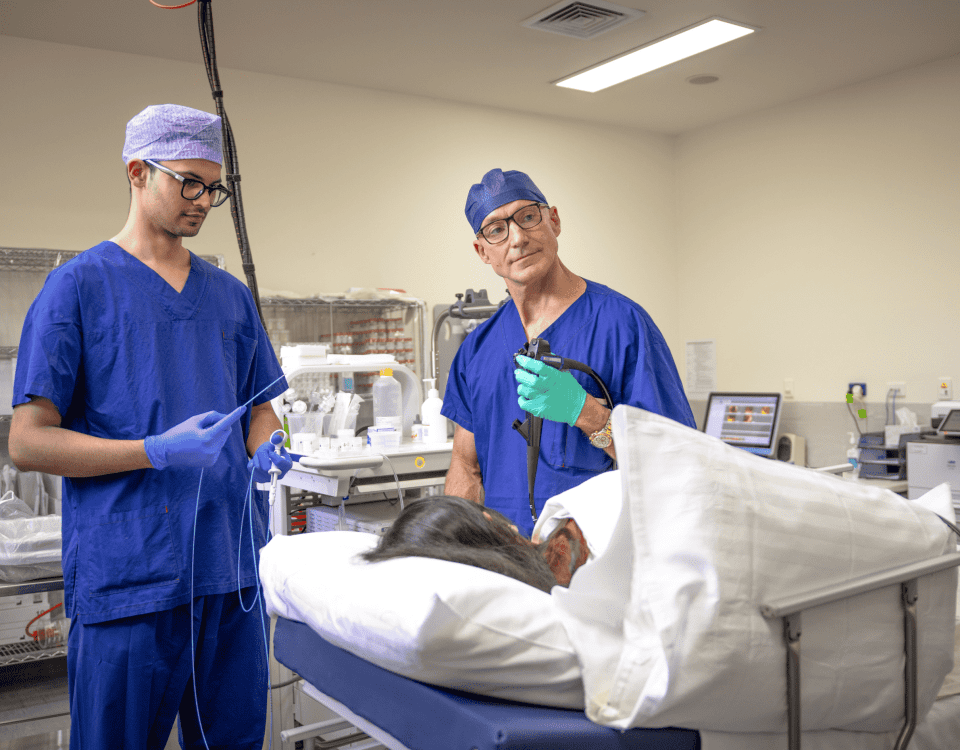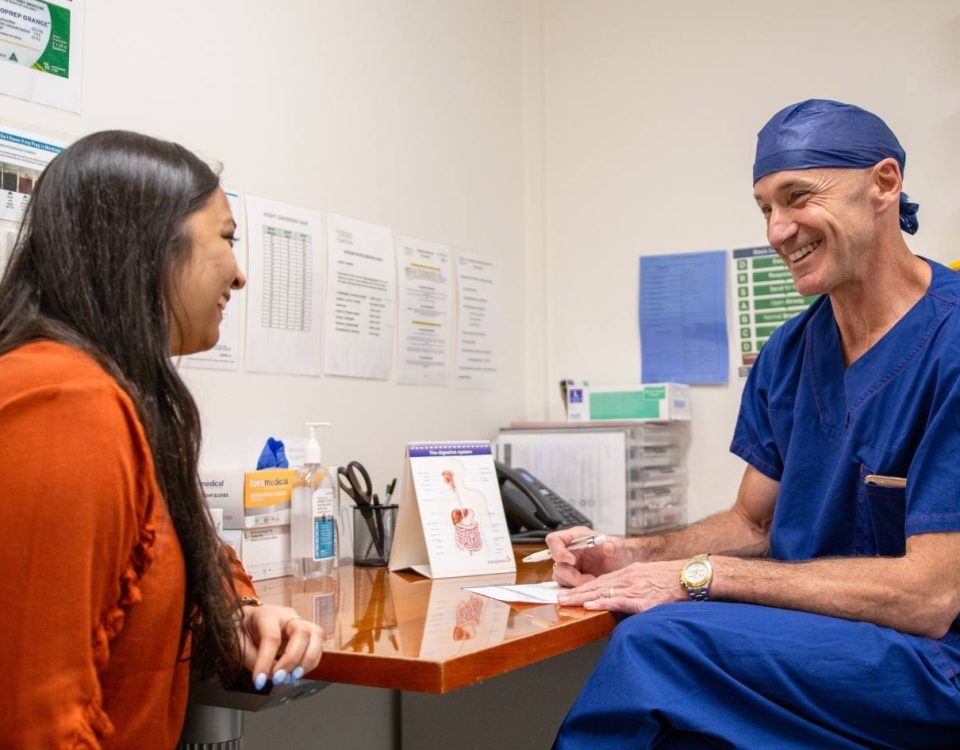
Bariatric surgery leads to significant changes in the body, making proper nutrition essential for long-term health. One of the biggest concerns post-surgery is protein malnutrition, which can result in muscle loss, fatigue, weakened immunity, and other complications. Ensuring patients follow a high-protein diet will support their metabolism, directly aiding their sustained weight management. In this article, experts from Winnett Specialist Group share key guidelines for post-surgery protein intake, recommended food choices, and practical tips for maintaining optimal nutrition.
The importance of protein intake
“The drastic reduction in kilojoule intake and the physiological and anatomic changes resulting from bariatric surgery necessitates careful nutritional planning,” says Bariatric and Laparoscopic Surgeon Mr Jason Winnett from Winnett Specialist Group. “Protein malnutrition can occur for a number of reasons after surgery, including poor dietary choice, an over-tight gastric band, anastomotic stricture or protein malabsorption. It may present several years following surgery.”
He says red flags GPs need to be aware of regarding protein malnutrition post-surgery can include:
- Thinning hair or increased hair shedding
- Muscle wasting and weakness
- Swelling in the legs and ankles
- Fatigue
- Decreased immune function
- Mood changes
- Brittle nails and dry skin
“Losing weight too quickly after surgery can be a sign the body is not getting enough protein and is breaking down muscle tissue for energy. The ideal weight loss after surgery is about 1-2 kg per week on average,” he says.
Winnett Specialist Group Dietitian Ashleigh Gale adds that adopting a protein diet can help preserve lean muscle mass after surgery, which in turn can help improve body composition and assist with long-term weight management. “Protein has a higher thermic effect than fats and carbohydrates that can slightly increase overall energy expenditure, supporting weight loss efforts,” she says.
“Furthermore, protein is nutrient-dense, which can provide essential vitamins and minerals, especially important after surgery,” she says, recommending that patients aim for 60 to 120g of protein a day, adjusted to age, sex and post-operative stage.
Eating protein post-bariatric surgery
“Patients will spend 1-2 weeks on a liquid diet, then move through a puree and soft food stage before recommencing solid foods 4-5 weeks post-surgery. This focuses on 3 to 4 meals daily that prioritise protein such as high-protein yoghurt, cottage cheese, eggs, fish, chicken and lean meats,” she says. “Patients will also have to think about adding some additional ‘tasteless protein’ into their fluids or food to hit their protein goals. In the first 3 months post-op, portion sizes will be about ¼ cup per meal, increasing to around 1 cup per meal for those who are 9-12 months into their journey. Ongoing, patients should eat 3-6 times a day,” she concludes.
Protein first
“When navigating their plate, encourage patients to eat protein first,” says Ashleigh. “One study in Diabetes Journal found that food order has a significant impact on postprandial glucose and insulin levels and can prevent insulin levels from rising too fast after a meal,” she says.
Encourage patients to include these foods in main meals:
- Eggs, salmon, asparagus and cottage cheese scramble
- Lentil and egg salad
- One protein shake meal replacement
- One piece of lean meat, chicken and fish
- Cottage cheese
- Tofu
- Whey powder
- Low-carb bread or wrap
- Beans, lentils, legumes and smaller amounts of pumpkin or potato
Encourage these protein snacks
Always have the following on hand in the fridge, pantry or desk drawer –
- Hard-boiled eggs (pre-made)
- One protein bar (we recommend Formulite)
- Half a cup of cottage cheese with pineapple pieces
- Half a cup of hummus with carrot
- A small handful of almonds.
Ideally, your protein intake after bariatric surgery should be spread across three to six meals per day in the short term. In the long term, snacks can be included based on appetite, in addition to breakfast, lunch, and dinner.
Newsflash
One recent study suggests that almonds have fewer kilojoules than previously thought because almond kilojoules are less bioavailable when measured clinically. In small doses, almonds are also linked to increased fat secretion compared with non-almond eaters*1.
GP investigations after bariatric surgery
GP Investigations for all bariatric patients post-surgery should include the following tests. These should be completed every 3 months for the first 2 years and then every 6 months afterwards –
- Routine labs: (fasting lipids, full blood count, urea and electrolytes, liver function tests, coagulation screen, urinalysis, fasting glucose and glycated haemoglobin (HbA1c) to screen for diabetes)
- C-peptide level to predict diabetes remission
- Nutritional screen: iron studies, vitamin B12 folate 25-OH, vitamin D
- Gastrointestinal evaluations such as abdominal ultrasound and endoscopy may be required.
Prioritising your protein intake
It is of vital importance that patients meet their daily protein intake requirements and prioritise a protein diet over carbohydrates. This will significantly aid their muscle gain, limit fatigue, and strengthen their immunity. Winnett Specialist Group believes in offering patients a full spectrum of support through a multi-disciplinary team comprising a weight loss surgeon, specialist physicians, dietitian, exercise physiologist and psychologist who are all involved in the patient’s journey, not just at the time of surgery but in the months and years that follow. Please contact us or call (03) 9417 1555 for more information.

Mr Jason Winnett
Laparoscopic and Bariatric Surgeon
P (03) 9417 1555 admin@winnettspecialistgroup.com.au
www.winnettspecialistgroup.com.au
Queens Terrace, 382 Victoria Parade, East Melbourne 3002



